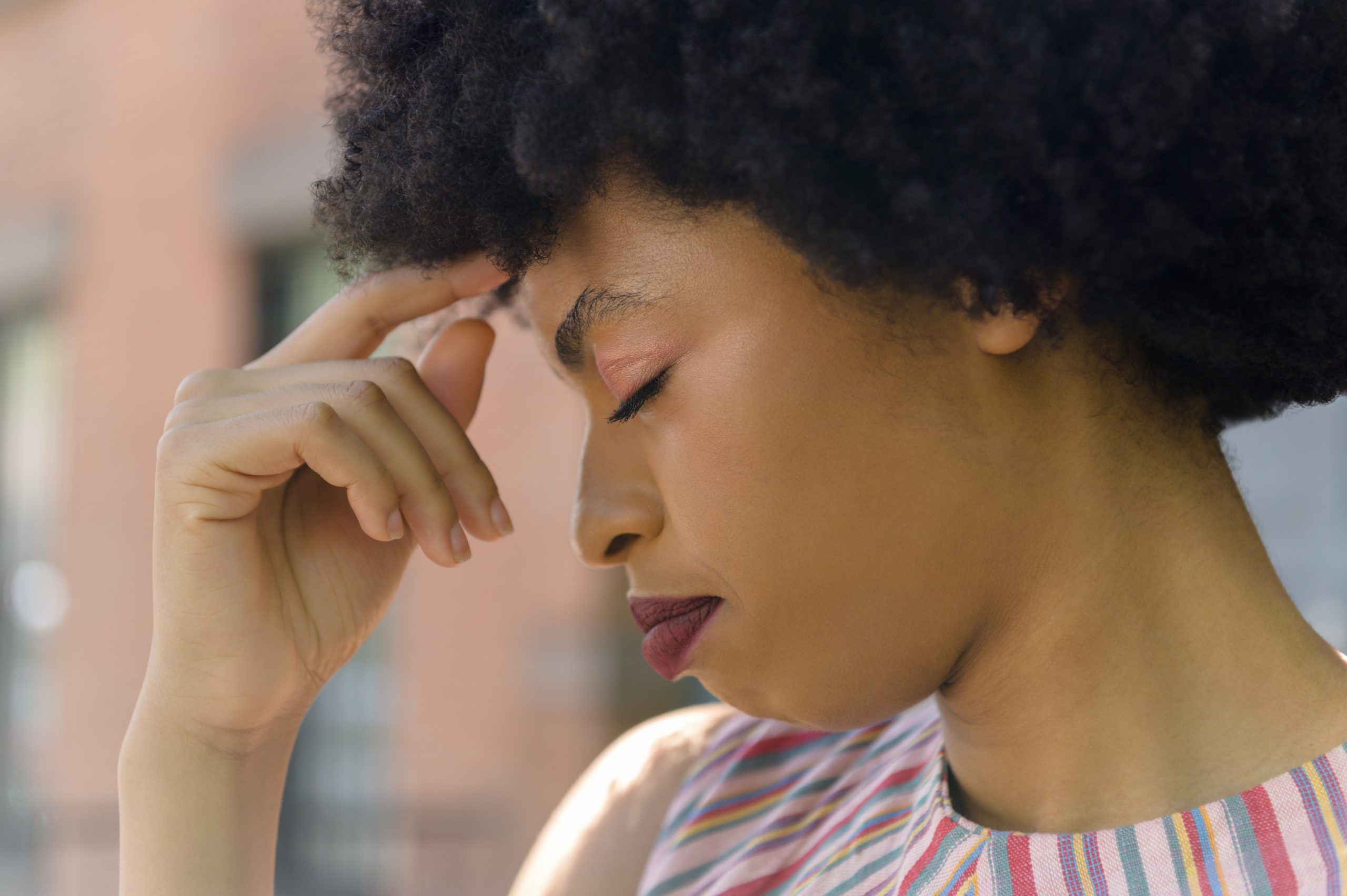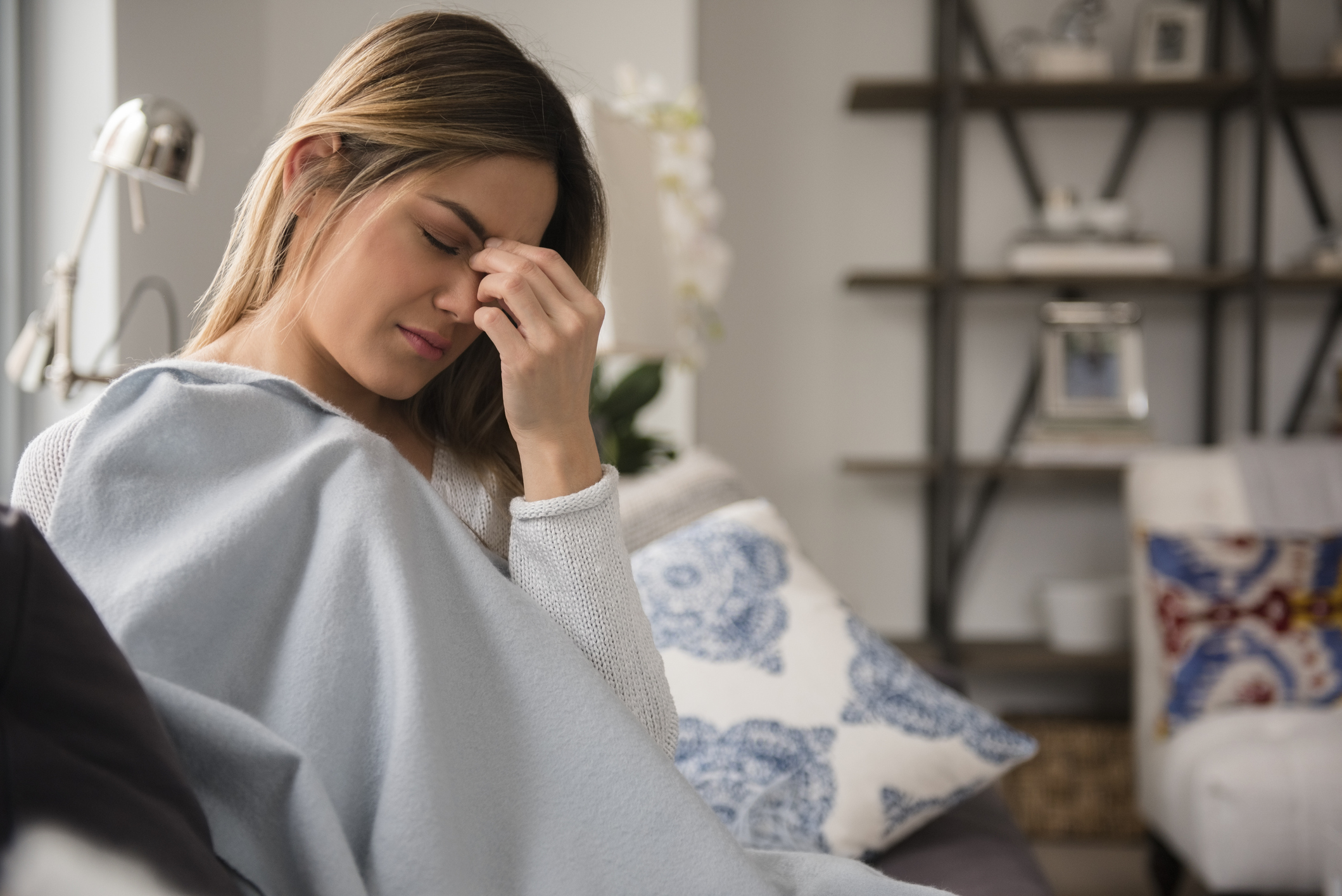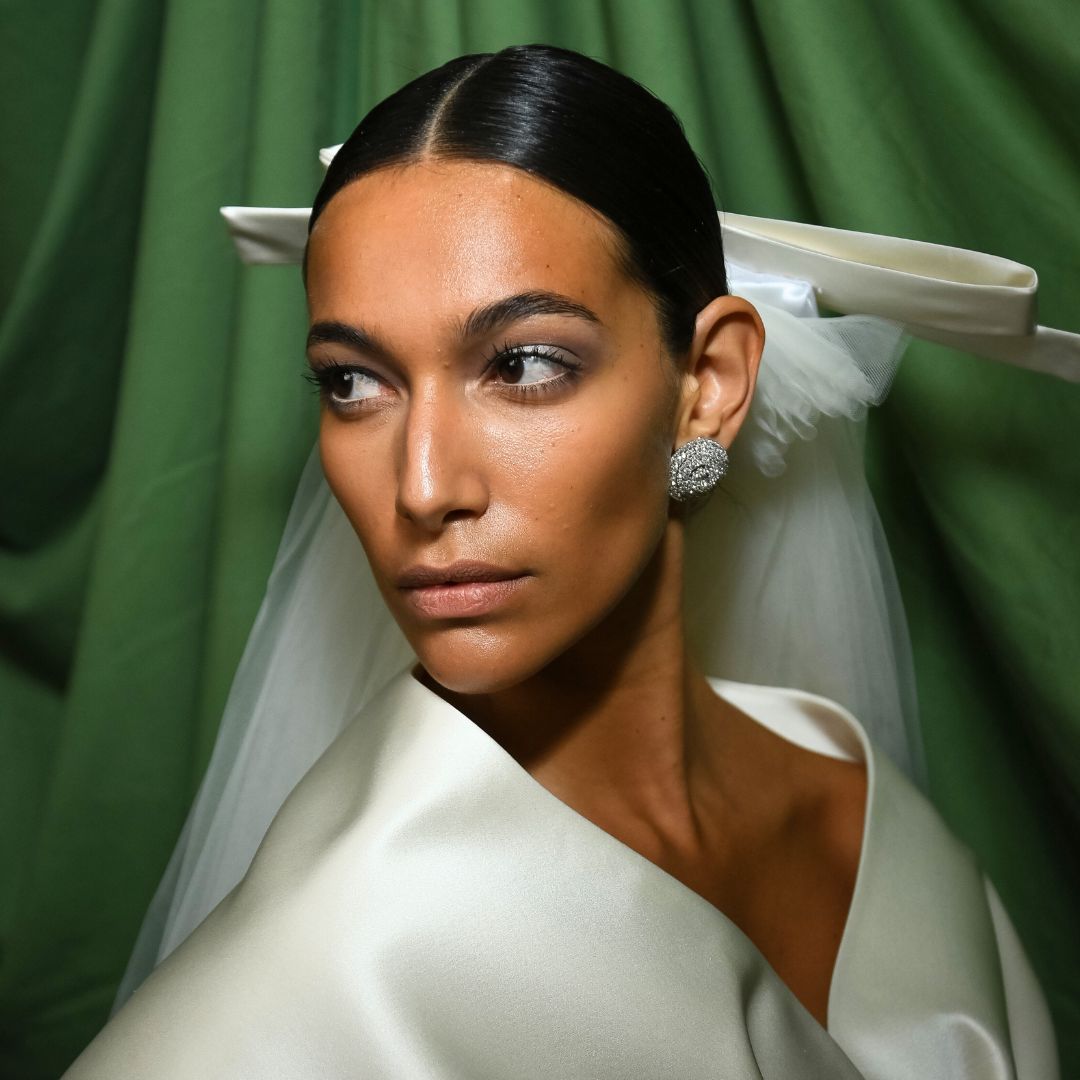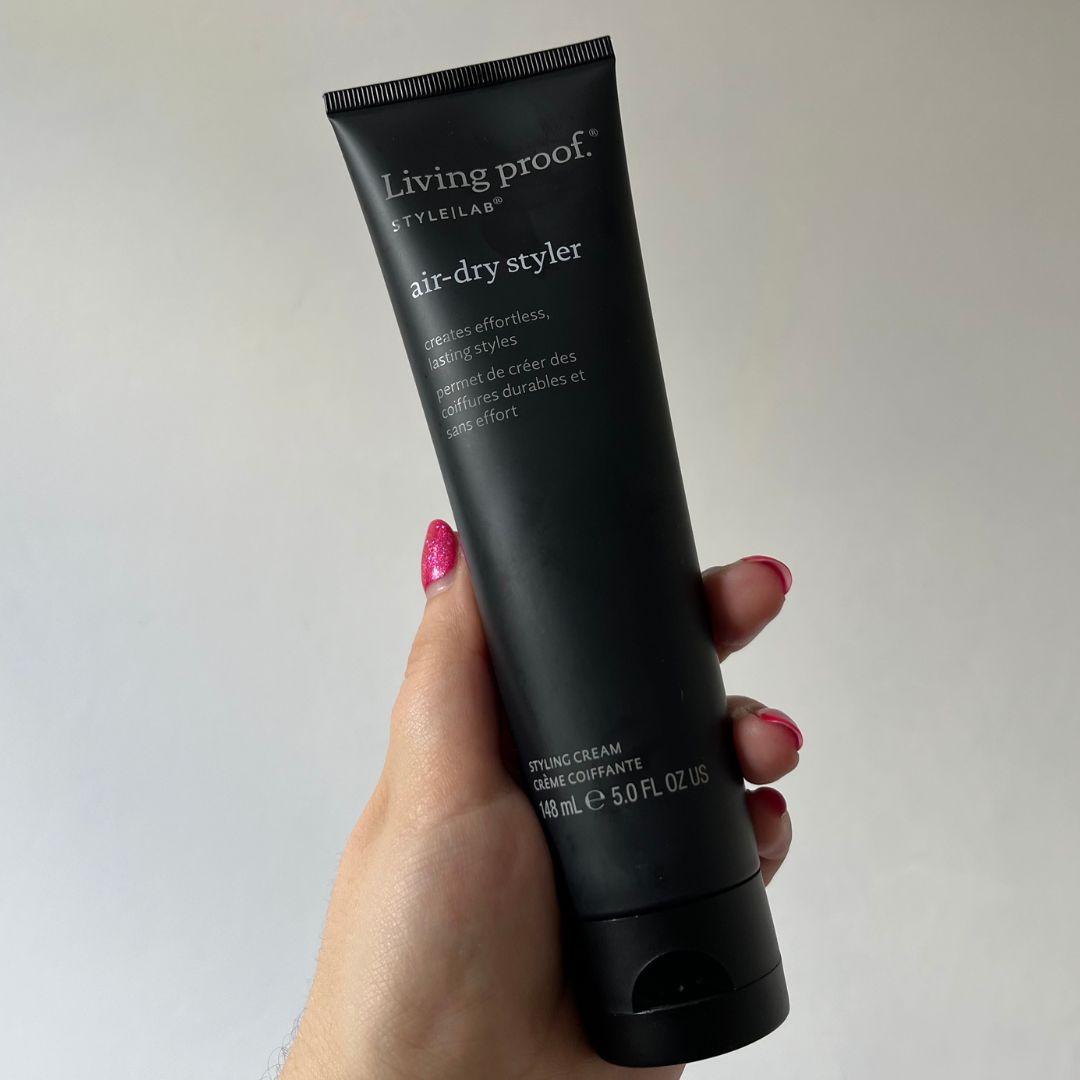Ever heard of menstrual migraines? Everything you need to know about debilitating TOTM headaches
Around 60% of women may be affected.

Around 60% of women may be affected.
Few women look forward to their TOTM for one simple fact: it can be mentally and physically enduring. For those who experience menstrual migraines, too, it's far worse.
Alongside the mood swings, food cravings, bloating, abdominal cramps, breast sensitivity, nausea, back pain and bleeding, as many as 60% of women also experience debilitating headaches, too.
A bit like a missed period, painful sex or recurring urinary tract infections, it can be worrying and seriously affect your month-to-month. As Chantelle Bell, co-founder of Syrona Health, explains, up to 60% of people who menstruate will notice a link between their periods and migraines. "This becomes more apparent when you reach your late thirties and early forties," she shares.
Keen to learn a little more about what menstrual migraines are, how they could be impacting your day-to-day, and how to prevent them? Keep reading.
Menstrual migraines: what are they?
Bell explains menstrual migraines as intense migraines which occur between two days before your period and in the first three days of your flow.
"The difference between menstrual migraines and normal migraines is that menstrual migraines are more likely to recur the following day," she shares. This means that those of you who suffer from them may discover that your normally effective migraine treatment works well most of the time, but not when you're menstruating.
Marie Claire Newsletter
Celebrity news, beauty, fashion advice, and fascinating features, delivered straight to your inbox!
Keen to have a more eco period? Read our guides to period cups, period pants and eco period products, while you're here.

Menstrual migraines causes
Interestingly, research has shown that the migraines may be triggered by a drop in estrogen levels which happens naturally around menstruation, shares Bell.
There's also a possibility that estrogen ‘withdrawal’ can trigger menstrual migraines. This occurs in scenarios such the pill-free interval of combined oral contraceptives, the founder explains.
Bottom line? Research is still ongoing and it’s likely there are multiple reasons for menstrual migraines. "This is due to the complex nature of menstrual cycles," Bell continues. "It's probably caused by the numerous brain chemicals (neurotransmitters) that alter the effect of hormones such as estrogen."
Menstrual migraines symptoms: 5 most common
Worried you might be suffering from menstrual migraines? The following are the most common symptoms to have on your radar:
- Severe pulsing in your temples
- Sensitivity to lights
- Nausea
- Fatigue
- Dizziness.

Menstrual migraines treatment: 5 top tips
Preventing or at least reducing the effect of headaches on your period is totally possible, according to Bell.
"The preventative measures are essentially the same as normal migraines, but anything that balances hormones is highly recommended," she shares.
Do note that she advises you speak to your doctor before making any changes to your routine or medications. Once you've had medical clearance, some potential treatments include:
1. Keeping a diary
Keeping diaries to understand when your period is due, migraine intensity and potential non-hormonal triggers is a good starting point.
"Monitoring your food intake, sleep and alcohol levels can be helpful to ensure your sugar levels are kept sufficiently high," shares Bell. "Also try and keep an eye on non-hormonal triggers such as these. Prior to menstruation, they may be sufficient to help identify the potential causes and subsequently address them."
2. Consider medication
Things like magnesium and estrogen supplements have been found to help, but do discuss with your doctor before you start supplementing.
3. Educate yourself
Reading up on menstrual migraines and making sure you identify your triggers is key to conquering your symptoms.
"Our Syrona Health SORA app is a great way to track your symptoms," recommends Bell.
4. Switch up your diet
Common treatments include a change in diet, reducing your intake of simple carbohydrates, refined sugars and processed foods from your eating pattern could help, shares Bell.
"Sleep, exercise and hydration are also considered essential for balancing hormones and promoting a healthy metabolism," she adds.
5. Treat it as any other migraine
Bottom line, menstrual migraines should be treated the same as regular migraines. "Recommended remedies include applying ice or a cold cloth to the painful area, relaxation exercises, pain killers and in some cases, acupuncture," she concludes.
If your symptoms persist and aren’t reduced by trying the following, it might be best to contact your GP for help dealing with more acute pain.
Chantelle has now been named as one of 30 to be selected for the Google for Startups $2 million (£1.5m) European fund for Black founded tech businesses.

Ally Head is Marie Claire UK's Senior Health and Sustainability Editor, nine-time marathoner, and Boston Qualifying runner. Day-to-day, she heads up all strategy for her pillars, working across commissioning, features, and e-commerce, reporting on the latest health updates, writing the must-read wellness content, and rounding up the genuinely sustainable and squat-proof gym leggings worth *adding to basket*. She also spearheads the brand's annual Women in Sport covers, interviewing and shooting the likes of Mary Earps, Millie Bright, Daryll Neita, and Lavaia Nielsen. She's won a BSME for her sustainability work, regularly hosts panels and presents for events like the Sustainability Awards, and is a stickler for a strong stat, too, seeing over nine million total impressions on the January 2023 Wellness Issue she oversaw. Follow Ally on Instagram for more or get in touch.
-
 I'm a 2025 bride and these are the best affordable wedding dresses I've found
I'm a 2025 bride and these are the best affordable wedding dresses I've foundLess than £1,000 but still the height of chic
By Sofia Piza
-
 Hands down, these are the best wedding foundations for each skin type
Hands down, these are the best wedding foundations for each skin typeThat bridal glow, bottled
By Denise Primbet
-
 I haven't worn my hair completely natural for years, but this air-dry styling cream has made me love my waves again
I haven't worn my hair completely natural for years, but this air-dry styling cream has made me love my waves againI will never be without this
By Amelia Yeomans